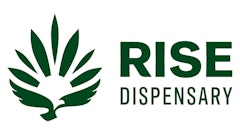
TALLAHASSEE, Fla. (The News Service of Florida) — An appeals court will hear arguments Jan. 8 in a legal battle about whether a ban on smoking medical marijuana violates a 2016 constitutional amendment.
The 1st District Court of Appeal on Monday scheduled the arguments in an appeal filed by the Florida Department of Health, according to an online docket.
The case stems from a 2017 state law that was designed to carry out a voter-approved 2016 constitutional amendment that broadly legalized medical marijuana.
Top photo courtesy of Adobe Stock
























